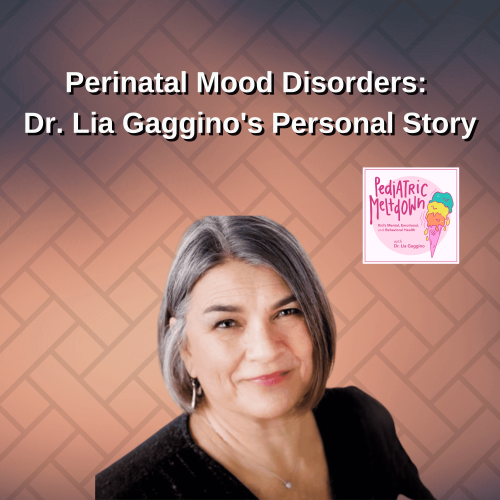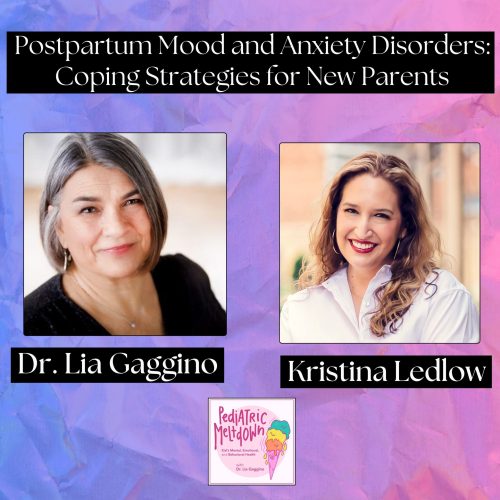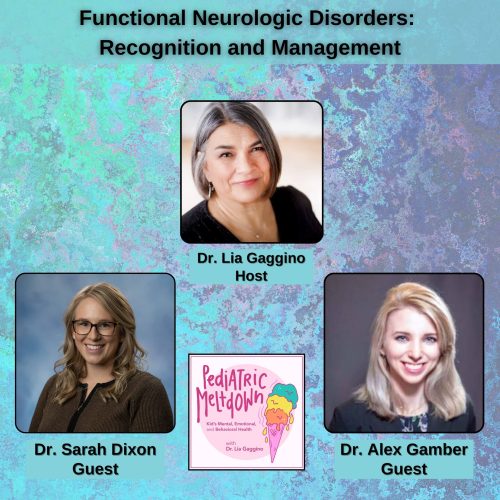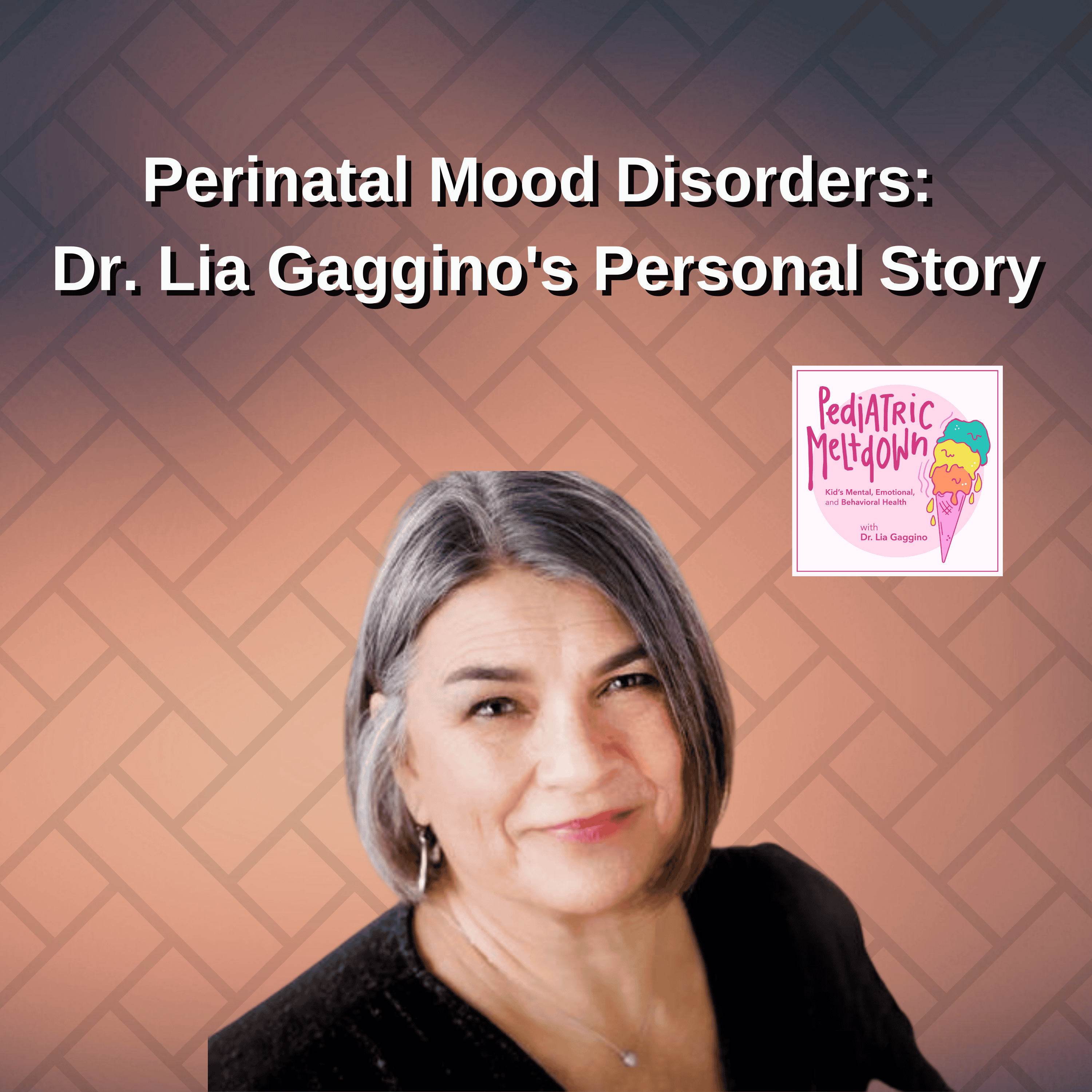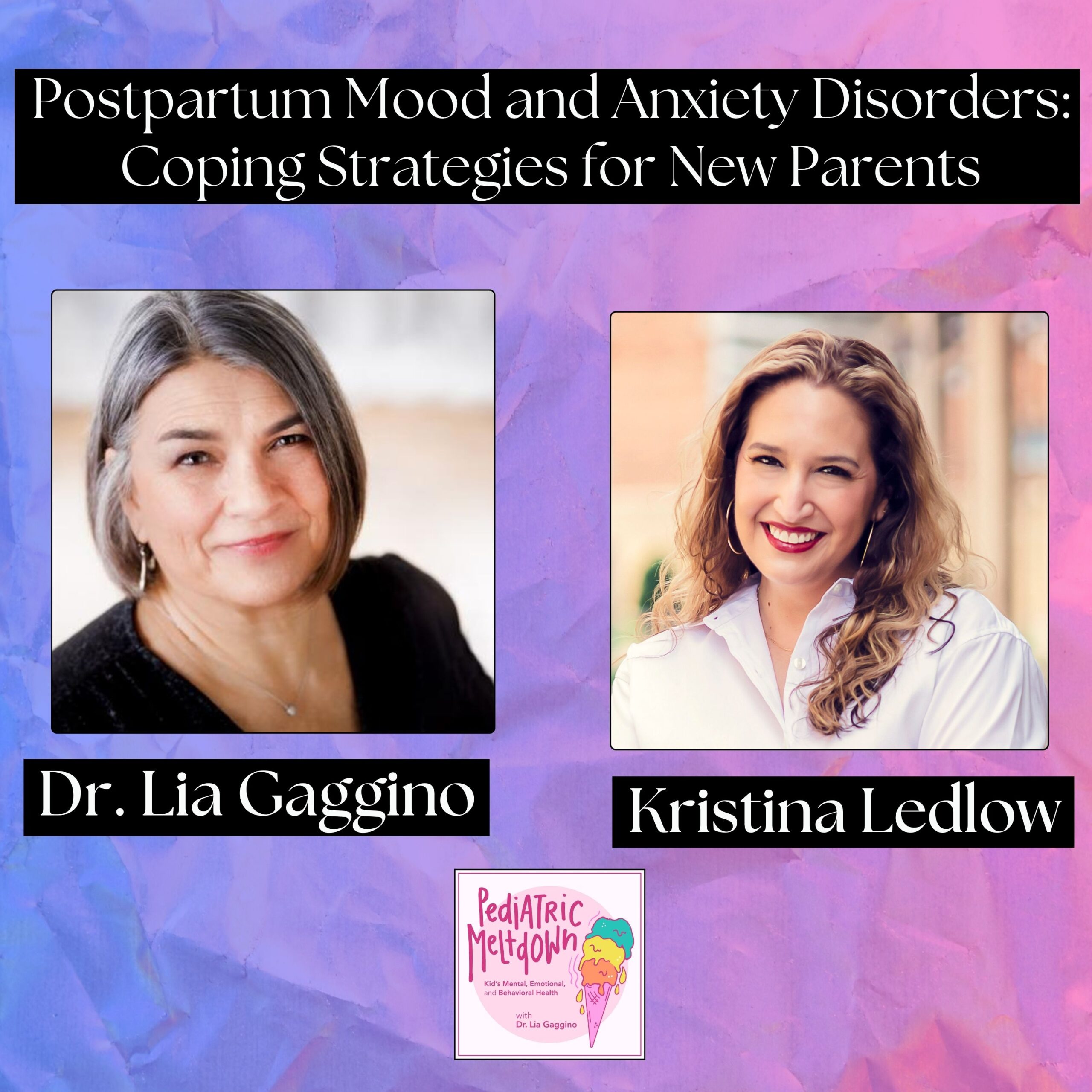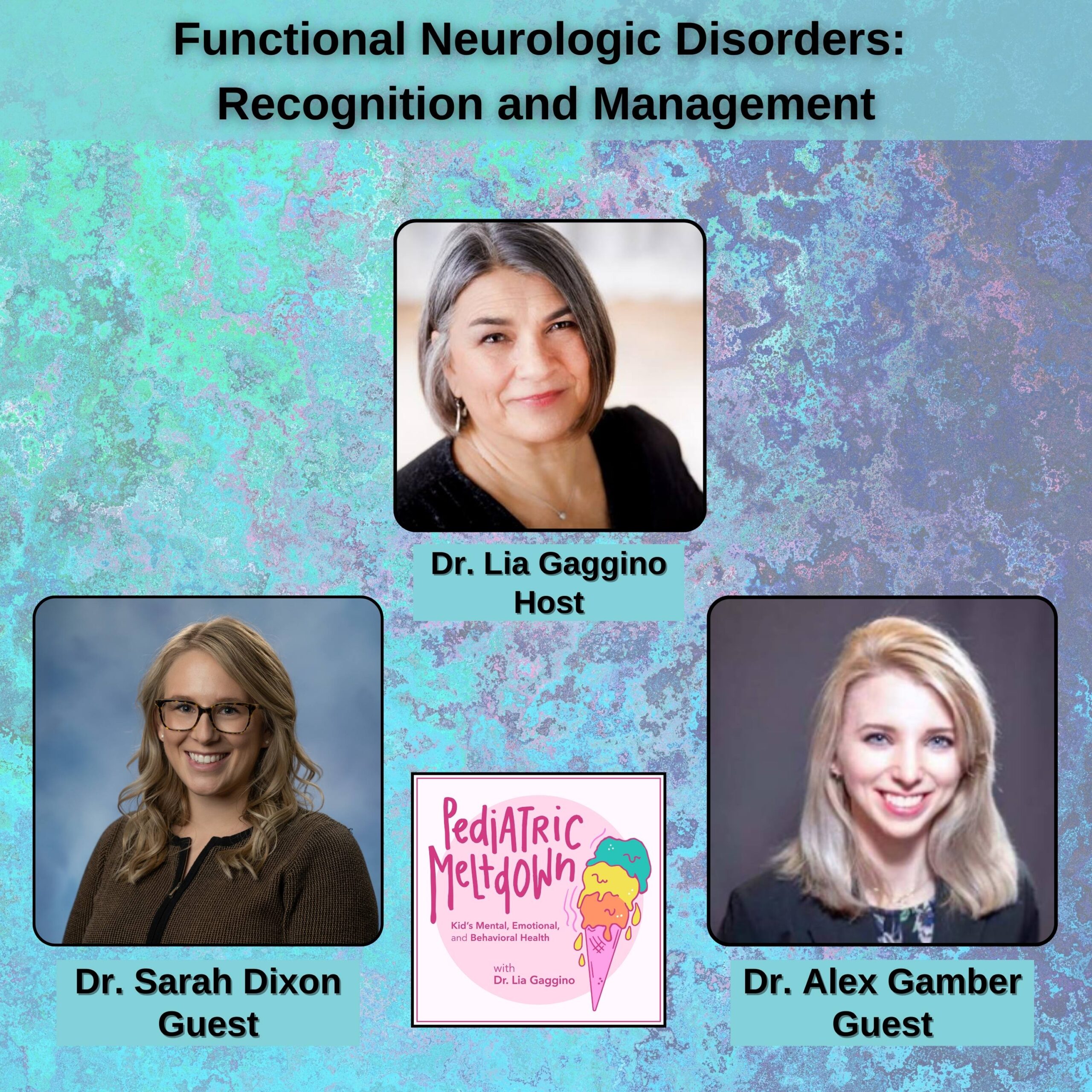TRIGGER WARNING: Please note that this episode contains a discussion of suicide, self-injurious behavior, depression and/or reference of other mental health disorders that may act as triggers.
In this thought-provoking episode, Dr. Lia Gaggino invites Dr. Lisa Horowitz back to the mic to discuss important aspects of suicide prevention programs and validation studies. They specifically focus on the role of pediatricians in identifying and supporting young people who may be at risk. They introduce the Brief Suicide Safety Assessment (BSSA), a tool that can help in these situations. Dr. Horowitz emphasizes the importance of using appropriate language when discussing suicidality with parents, offering a valuable perspective that can change how we approach this sensitive topic. This episode serves as a reminder of how crucial it is for caregivers to provide guidance, support, and reassurance to children, and to make them aware of available resources when facing challenges. Just like we talk to our children about topics such as safe sex or drugs and alcohol, discussing resilience should also be an ongoing conversation. Caregivers must equip children with coping mechanisms rooted in resilience to prepare them for the future. So together, let’s create a community where children feel safe to ask questions, without fear of judgment or stigma. By investing time today in building resilient kids, we can nurture a generation capable of overcoming any hurdles they may encounter tomorrow.
[02:37 -12:30] Screening Practices and Feasibility Studies
- Several studies demonstrate the feasibility of screening practices.
- Screening can be effective in identifying acute and non-acute cases.
- The fifth question in the screening process determines the acuity of the situation.
- Comprehensive toolkits provide scripts and guidance for medical professionals.
[12:31- 23:41] Brief Suicide Safety Assessment (BSSA)
- Specifically created with pediatricians in mind to aid in suicide risk assessment.
- Aims to remind pediatricians about essential elements of the BSSA.
- Serves as a middle step in the pathway of suicide screening programs.
- Offers a triage of the screening process to further assess and prioritize patients.
[23:42 -31:52] Practical Next Steps
- Determine urgency: Assess immediate need for intervention based on the frequency and severity of the thoughts
- Provide support: Offer a listening ear and a calm presence to help the individual express their feelings and thoughts comfortably.
- Safety measures: Talk about the importance of safety, including lethal means safety, especially when firearms are involved, to prevent any potential harm.
- What’s next: Based on the assessment and discussion, determine the appropriate disposition or action plan to address the individual’s needs effectively.
[31:53- 39:49] Importance of Taking Action and Finding Support
- Emphasize the difference between doing nothing and doing something.
- Stress that it is acceptable for plans to change if the initial approach is not working.
- Assure individuals that there is a process and plan in place to keep them safe.
- Offer the option for a follow-up call from your staff to inquire about their well-being, providing a sense of reassurance and support for parents.
[39:50 – 48:05] Closing segment Takeaway
Links to resources mentioned on the show
- NIMH ASQ Toolkit:
- AAP Blueprint for Youth Suicide Prevention:
- CDC Youth Suicidal Thoughts and Behaviors:
- .
- Counseling Access to Lethal Means Safety CALM Course:
Other episodes you may like:
For all episodes, go to
96 AAP Blueprint for Youth Suicide Prevention: A Roadmap
08 Screening Youth For Suicide Risk: Can it be done in a busy pediatric practice?
Key quotes for Twitter:
“ I think the worst thing that would happen is I asked you, I didn’t really want to know, and now I need to send you somewhere else because I have no idea what to do.” …. Dr. Lisa Horowitz on practicing your workflow in a case of an emergency
“So the BSSA, again, is the middle step of the pathway and I believe that makes or breaks your screening program.”…. Dr. Lisa Horowitz on the different questions on the Brief Suicide Safety Assessment
THANK YOU FOR YOUR SUPPORT!
Pediatric Meltdown was listed as
.
If you’d like to connect with me, you can Tap the “What Are Your Thoughts” button at the top of the notes or you can find me on
, , Instagram, and , or email me at [email protected] or [email protected]. To learn more about me visit
LOVE WHAT YOU HEARD? Leave us a 5-star review so we can continue to provide you with great content. Share this episode and help people know more about children’s health and well-being.



